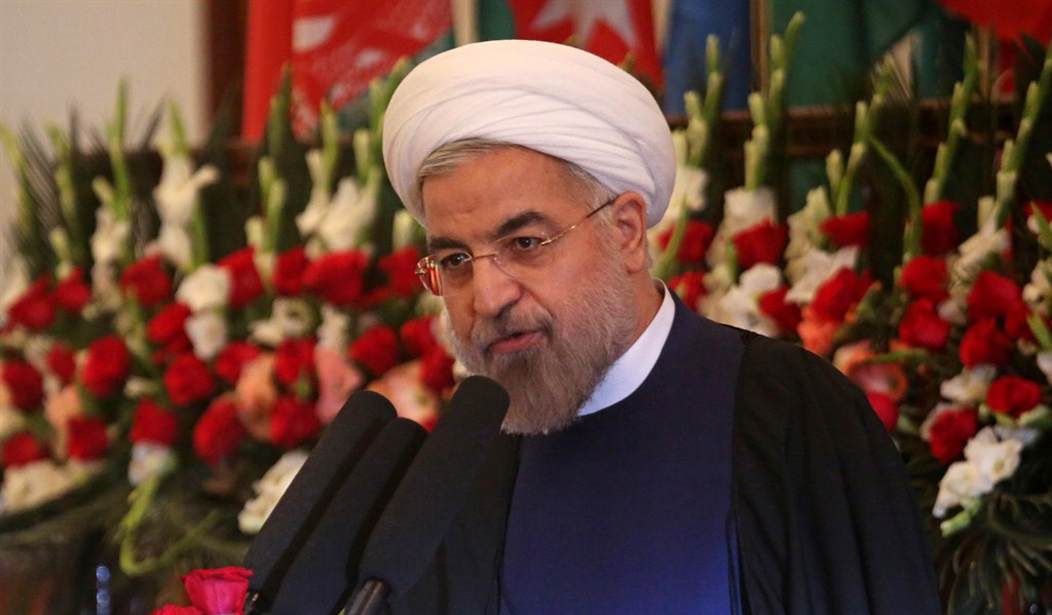With the attack last week that killed 17 people at a school in Parkland, Florida, it is easy to miss the humanitarian crisis that occurred across the globe in Syria. On Tuesday, hundreds of civilians, including children, died when Syria's government and its allies executed a direct strike on a rebel stronghold in eastern Ghouta -- where Syrian forces used sarin in 2013, killing an estimated 1,500 people. The bloody faces of small children are all too familiar in this vicious war by Bashar Assad and his Iranian and Russian allies, who are intent on keeping him in power. More than 5 million people have fled the regime. Another 6 million have been displaced within Syria. And hundreds of thousands of people have died in the civil war.
Though this carnage has drawn condemnation from the U.S., Europe and elsewhere, as long as Assad's partners in crimes against humanity, Russia and Iran, continue to supply arms and fighters to the region, the killing will not stop. The United Nations has been impotent to impose meaningful sanctions because Russia, a permanent member of the U.N. Security Council, has veto authority to stop them, which it has used seven times so far. But what of Iran's role? Why has the international community not done more to focus on Iran's activities in the region? And more importantly, why are U.N. bodies inviting members of Iran's government to participate in human rights councils at the very time Iran is helping Syria massacre civilians?
The U.N. Human Rights Council meets in Geneva next week, and one of the speakers scheduled to address the group is Iranian Justice Minister Alireza Avayi. That any official of the Iranian regime should address the council is appalling, but that this particular official should do so at this particular time is doubly so. Iran's human rights record is one of the worst in the world, a matter affirmed not just by independent human rights organizations but by the U.N.'s own reports. The latest report on human rights conditions in Iran, issued in August 2017, criticized the government for its abuses against its own people, including at least 247 executions -- many for drug offenses -- as well as floggings, binding, amputations and stoning, not to mention the routine abuse of women's rights and those of religious and ethnic minorities. But Avayi's participation is particularly offensive given his personal history of egregious human rights violation.
Recommended
Avayi was appointed by Iranian President Hasan Rouhani in August as the minister of justice for the Islamic Republic of Iran, but he has long been an arm of the mullahs who have ruled Iran for nearly 40 years. The European Union has accused Avayi of gross human rights abuses as head of the Tehran judiciary, responsible for arbitrary detentions, numerous executions and the violation of rights of prisoners. But Avayi's most infamous acts were his involvement in the mass executions that took place in 1988, when the regime executed more than 100,000 political prisoners and buried them in mass graves. Avayi was part of a so-called "death board" that oversaw these executions. These atrocities have only recently been recognized outside the community of the Iranian opposition group whose members constituted many of the victims, the Mujahedeen-e-Khalq. Avayi's human rights abuses did not end there, however. They have continued to the present, including his department's involvement in the torture and murder of dissidents after the 2009 protests in Tehran. So how can such a man be allowed to speak before an international body whose purpose is to oversee human rights?
If we want to stop the bloodshed in Syria and the entire region, we must do more to prevent Assad's enablers. As long as Russia and Iran provide weapons, military forces and financial support to Assad, children and other innocent civilians will continue to die. Stopping the flow of money, arms and fighters to the region might be difficult, but some measures should be easy: Do not allow those involved in mass murder to address a U.N. gathering whose whole purpose is to protect human rights.

























Join the conversation as a VIP Member